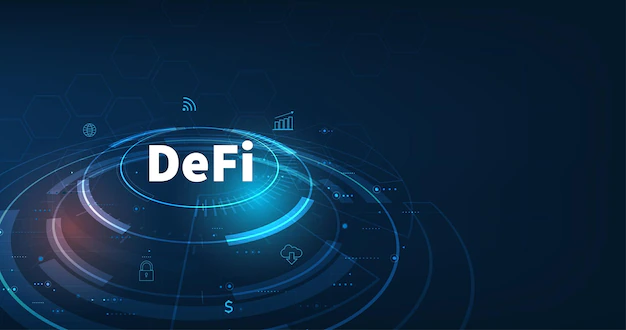What is DeFi?
DeFi, or decentralized finance, is a relatively recent trend in the bitcoin sector, with consumer interest skyrocketing between 2019 and 2020. According to Binance Research, the decentralized finance market witnessed a mini-boom in 2019, with the consumer base and infrastructure...

DeFi, or decentralized finance, is a relatively recent trend in the bitcoin sector, with consumer interest skyrocketing between 2019 and 2020.
According to Binance Research, the decentralized finance market witnessed a mini-boom in 2019, with the consumer base and infrastructure both expanding. And, as with ICOs in 2017, a genuine hype developed around this subject in 2020. Coins from the DeFi sphere are expected to be among the most profitable during the next cryptocurrency bullrun in 2021.
Previously, DeFi’s portion of the cryptocurrency market was quite tiny, but by 2021, the sector had grown significantly and attracted a large number of traders and investors. What sparked this interest, and what are DeFi’s prospects in 2022?
Scope of DeFi
The main usage of DeFi are loans and deposits. You can lend cryptocurrency to another user for a set period at a percentage. For example, through the MakerDAO, Compound or Aave platform. The rate will depend on the selected coin.
Trading on decentralized exchanges directly between users. Such an exchange does not store personal data, but only acts as an exchange tool, we suggest matches for the purchase or sale of tokens. Notable platforms: Uniswap, Curve Finance, Sushiswap.
The ecosystem also includes the use of the development of decentralized stablecoins. They are more immune to exchange rate swings than other cryptocurrencies since they are tethered to fiat currencies, unlike other cryptocurrencies. As a result, they are far more suitable for financial transactions.
Dai, based on the Ethereum blockchain and tied to the US dollar, is one of the most well-known stablecoins.
Using DeFi allows to:
- Increase access to financial instruments in nations where the banking system is underdeveloped;
- Create a truly decentralized market, where the cost of services will not be determined by the will of the government or company leaders;
- Receive passive income from cryptocurrency assets;
- Significantly reduce commission fees for transfers, loans, deposits.
The following criteria apply to DeFi applications:
- Accessibility to everyone with an internet connection;
- Work that is transparent to all parties while respecting individual confidentiality;
- The majority of DeFi providers offer crypto-backed loans, accept crypto deposits, or operate decentralized lending platforms (you to me, I to you).
Ethereum is typically utilized for transactions, with bitcoin being used less frequently.
Since Ethereum has established itself as the primary DeFi cryptocurrency, the industry’s popularity is defined by the quantity of locked coins (collateralized Ethereum is blocked).
Drawbacks of DeFi
The DeFi sphere has not yet become widespread, it is mainly used by professional traders and large institutional investors, or speculators. People who are familiar with cryptocurrencies and have the opportunity to experiment with new types of assets.
There are certain reasons for this:
- Low liquidity. Funds cannot be exchanged for fiat money, and ordinary users have such a request.
- Slow scalability. DeFi protocols are not yet designed for a large audience, and overloads often occur when demand is high. The main task for developers is to optimize applications and increase throughput.
Why DeFi Projects are Needed
The emergence of the DeFi sector is a huge leap for cryptocurrencies, because. Traditional financial institutions have finally got competitors who can shake their monopoly on cash flow control.
Decentralized finance is useful both for users:
- Services can be obtained bypassing the bank and even where there is simply no bank;
- Almost anyone can bring their own asset to the market;
- Payments are no longer processed for several days;
- Commission and interest rates are several orders of magnitude lower;
- Now you can earn on cryptocurrency not only by trading.
So for the cryptocurrency industry:
- The coins have received a new use, which increases their value for holders;
- DeFi services simplify the interaction between different coins and blockchains, and, therefore, erase technical barriers;
- The opportunity to get a cheap loan, transfer funds to the other side of the planet or create your own digital asset encourages investing in cryptocurrencies.
The Bottom Line
Despite the shortcomings, DeFi protocols remain a rapidly growing sector of the crypto market, which we are all witnessing. In the foreseeable future, decentralized finance is unlikely to completely change the traditional banking sector and be able to offer users familiar services such as paying benefits or applying for blockchain-based mortgages. But over the past year, DeFi has seriously revived the field of cryptocurrencies and gave it, if not a second, then definitely a new breath.
